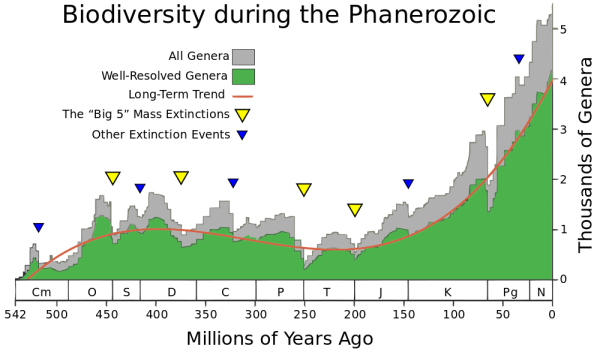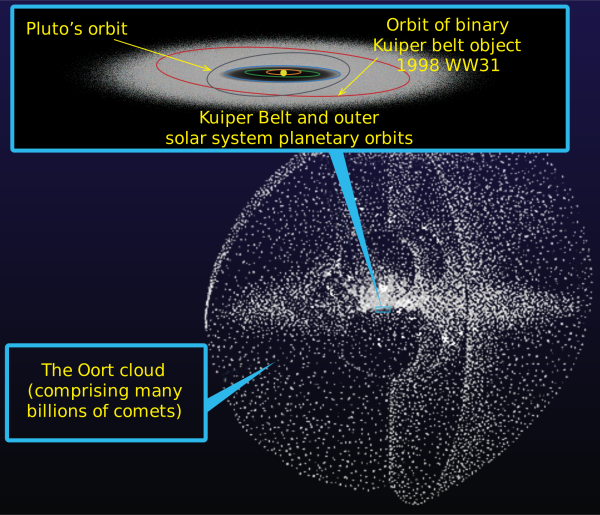"Biological diversity is messy. It walks, it crawls, it swims, it swoops, it buzzes. But extinction is silent, and it has no voice other than our own." -Paul Hawken
Looking at the history of life on Earth, the fossil record shows something incontrovertible: in order for new forms of life to rise to dominance, it requires something to knock the prior forms from dominating their ecological niche. This can come about in any number of ways, but the most striking changes come from catastrophic events that wipe a large percentage of species off the Earth at once: a mass extinction event.
While the asteroid strike that wiped out the dinosaurs was perhaps the most famous one, there is bountiful evidence that there were many others over the past 500 million years, with perhaps some periodicity to these events. Recently, reports have emerged that our Sun's passage through the galactic plane, with periods of 26-30 million years, might correlate with these events. Yet a look at the fossil record shows extinction events do not have the required periodicity to account for that, nor do Oort cloud strikes account for the majority of such events on Earth.
 Image credit: Wikimedia Commons user Albert Mestre, with data from Rohde, R.A., and Muller, R.A. (2005-03). “Cycles in fossil diversity”. Nature 434: 208-210.
Image credit: Wikimedia Commons user Albert Mestre, with data from Rohde, R.A., and Muller, R.A. (2005-03). “Cycles in fossil diversity”. Nature 434: 208-210.
Come feel good about your safety on Earth (for once) on this week's Ask Ethan!
- Log in to post comments


I'm not fully up to date on extinction event causes, but I have the impression that impacts are only implicated in one or two of them. Giant flood basalt eruptions seem to be a prime suspect in many, and at least a secondary suspect in the KT event, which is coincident with both the Chixulub impact, and the Deccan traps flood basalt event. There is also a hybrid theory of the KT event, the Deccan flood event was spread over roughly a million years, but it is possible that severe seismic shaking from the impact might have initiated an especially active phase of the eruption.
In any case if impacts are only the cause of a smallish fraction of the events, then even if there is a periodicity to the impacts, the periodic signal would be very small.
"in order for new forms of life to rise to dominance, it requires something to knock the prior forms from dominating their ecological niche. "
Would that be considered a low entropy outcome?
Or Could instead of would?
If our star system passes through a higher-risk region of our galaxy every 26 - 30 million years, then we should be able to roughly predict the time until the next such passage.
In that case we should have plenty of time to scale up a space defense sufficient to keep potentially threatening objects away, such as by a gentle tug from a gravity tractor or a nudge from a thruster. We can start now, based on the objects we expect to encounter within a generation or two. These are unlikely to be extinction threats (for that we have runaway climate change), but any of them could turn out to be city-wipers and cause casualties and damage of historic proportions.
Space defense can easily be piggybacked onto our existing space efforts. New fundamental science isn't needed, nor even major breakthroughs in technology. We have the ingredients, all we need is the will translated to funding. Increasing NASA's budget to a mere 1% of the US federal government budget is a good place to start.